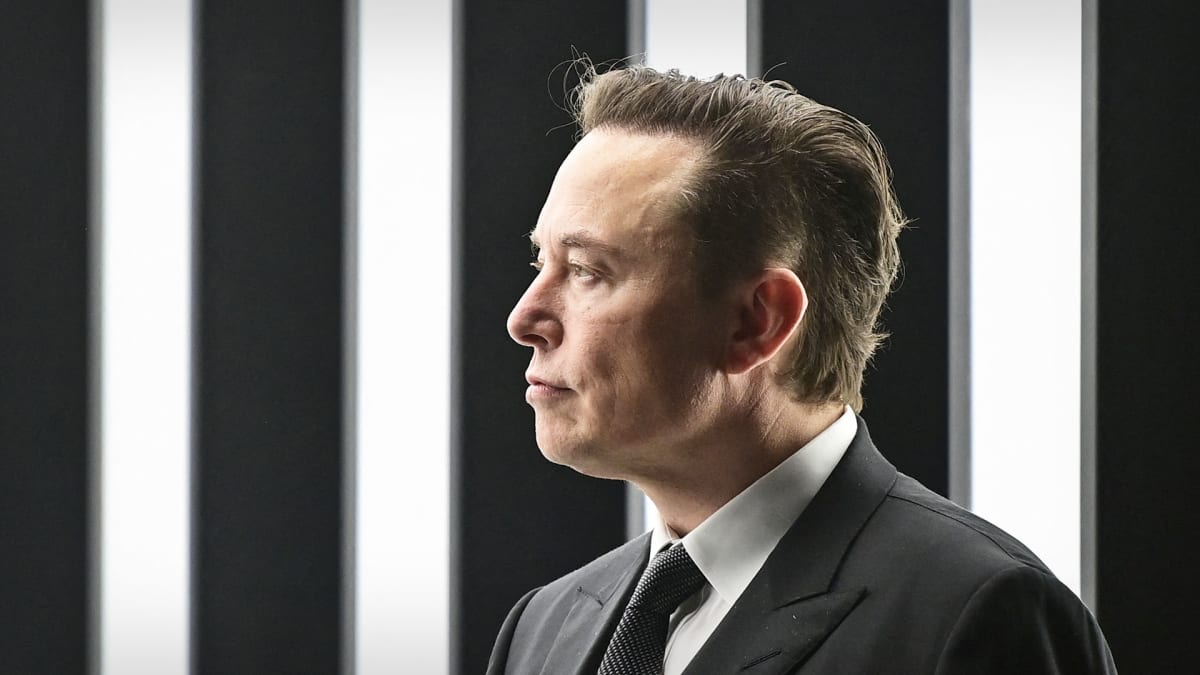
Elon Musk is pushing.
The billionaire entrepreneur seems determined to push the Ukrainians and Russians to negotiate a peace agreement and end a war that's has been going on since Feb. 24.
This conflict started with Russia's unprovoked invasion of Ukraine. Russian President Vladimir Putin hoped for a quick victory. But nine months later, the Kremlin is facing unprecedented resistance from Ukraine, which is supported by NATO's military, financial and logistical aid.
Russia could not have foreseen that Ukraine would obtain a communications system that would enable it to communicate independently and safely on the front and, in turn, to control a key part of the war's narrative.
Musk provided Ukraine with exactly that: Starlink, the secure and independent Internet access service, developed by his aerospace company SpaceX. Starlink became a critical asset for the Ukrainians after Russia destroyed all their communications infrastructure.
'Musk Among the World's Top Private Donors'
"Definitely @elonmusk is among the world's top private donors supporting Ukraine," said Ukraine's vice prime minister and minister of digital transformation, Mykhailo Fedorov, on Oct. 24. "Starlink is an essential element of our critical infrastructure."
Starlink is used particularly by civilians in areas under Russian attack and in areas where infrastructure has been destroyed. Government officials and armed forces employ the service on the ground because it's secure. Starlink's satellites also are helping Ukrainian military drones destroy Russian tanks and army trucks.
While Musk is a big supporter of Ukraine, the billionaire also calls himself a pragmatist. It is in this capacity that he feels the time has come to negotiate for peace, as the conflict is escalating. Musk fears that extremism on both sides could lead to World War III, given the probability of the use of nuclear weapons.
The cost to Ukraine and the world would be enormous. And the chief executive of Tesla (TSLA), who has promised to transform civilization for the better, wants to avoid this at all costs. He began by proposing a controversial peace plan on Oct. 3.
The proposal called for Ukraine to surrender Crimea, which Russia annexed in 2014, and to forgo its aspirations to join NATO and the European Union, two organizations that Putin sees as threats to his country's sovereignty.
This plan was rejected by the Ukrainian authorities, including President Volodymyr Zelensky, who accused Musk of becoming a supporter of Russia.
It also subjected Musk to fierce criticism from Ukraine's supporters, such as the former world champion chess grandmaster Garry Kasparov, who called it "moral idiocy."
Put Pressure on the White House
The billionaire, who has become one of the most influential personalities with roughly 110 million followers on the Twitter social network, has more than once injected himself into foreign affairs, not always in alignment with U.S. strategy. (In particular, see his approach to the China-Taiwan dispute.)
And on the Ukraine front, he has not given up. He continues to advocate that negotiations, sooner rather than later, are the only realistic way out of the war.
Musk has voiced his agreement on a way forward. And the Ukrainians might not welcome the idea since it questions the personal motivations of Zelensky, who has become a national hero.
Musk says the U.S., one of the world's top supporters of Ukraine via NATO, must pressure Zelensky, in an effort to both safeguard Ukraine's security and protect the American economy.
The argument was made by the tech investor David Sacks, who is a friend of Musk. on Oct. 24 Sacks tweeted several posts, commenting on a letter by 30 liberal Democrat lawmakers, who asked President Joe Biden to rethink his Ukraine strategy. The Democrats pleaded for direct talks with Russia.
"We urge you to make vigorous diplomatic efforts in support of a negotiated settlement and ceasefire, engage in direct talks with Russia, explore prospects for a new European security arrangement acceptable to all parties that will allow for a sovereign and independent Ukraine, and, in coordination with our Ukrainian partners, seek a rapid end to the conflict and reiterate this goal as America’s chief priority," the 30 lawmakers wrote in their letter.
"The White House’s reaction to the letter was pathetic, saying that only Zelensky gets to decide. That might be true if we weren’t backing Ukraine with money, weapons and intelligence. But since we are, we should certainly have our own point of view," Sacks argued.
He added: "The US knows that it has substantial influence over its client Zelensky. But the excuse itself — that the US must delegate its own security to a foreign government — should be unacceptable to every American."
Musk agreed with his friend's pitch.
"Exactly!" he said.
The progressives, however, withdrew their letter on October 25, after pushback from other Democrats and Ukrainian officials who felt it was unrealistic to negotiate with Putin.
"As Chair of the Caucus, i accept responsibility for this. Because of the timing, our message is being conflated by some as being equivalent to the recent statement by Republican Leader [Kevin] McCarthy threatening and end to aid to Ukraine if Republicans take over," said Rep. Pramila Jayapal, D-Wash.
"The proximity of these statements created the unfortunate appearance that Democrats, who have strongly and unanimously supported and voted for every package of military, strategic, and economic assistance to the Ukrainian people, are somehow aligned with Republicans who seek to pull the plug on American support for President Zelensky and the Ukrainian forces."







